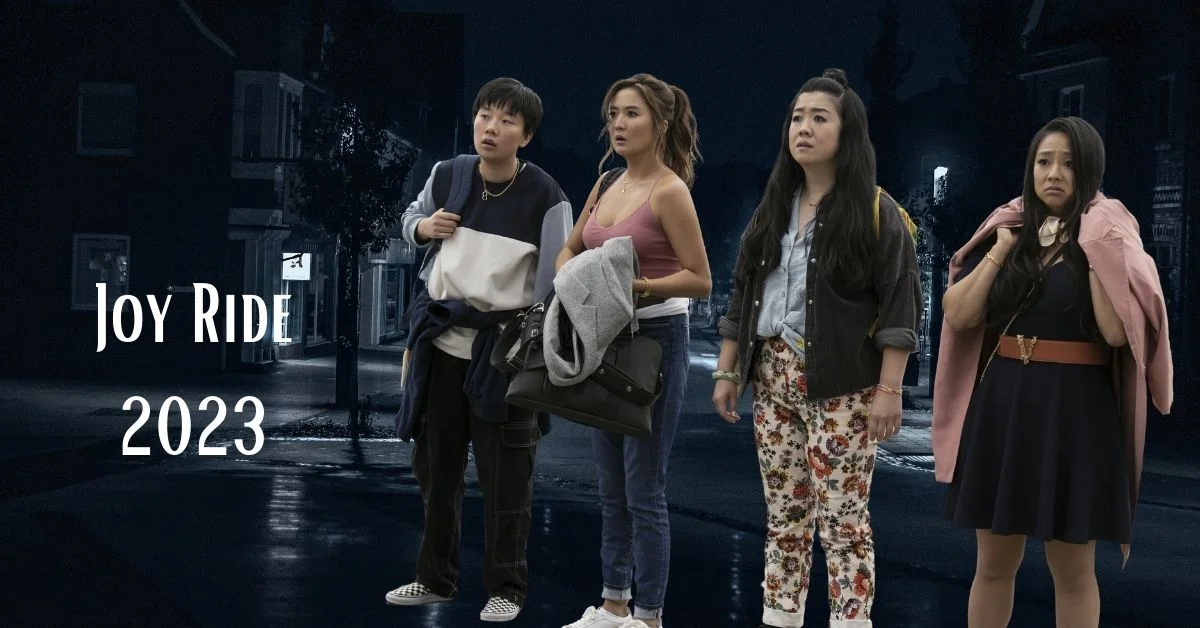When “The Joy Luck Club” premiered in theaters in 1993, it created history by demonstrating to a skeptic and, let’s face it, a racist industry that there was a large audience interested in a film that was culturally sensitive toward the Chinese American community.
A third of a century later, we get “Joy Ride,” which throws caution to the wind in its quest to smash down any remaining walls. The Seth Rogen-produced, hard-R road movie follows small-town besties Audrey (Ashley Park) and Lolo (Sherry Cola) to Beijing, where they tackle everything from taboo tattoos to a devil’s threesome with all the gusto you’d hope or expect from “Crazy Rich Asians” co-writer Adele Lim’s directorial debut.
Lim’s sleazy breakthrough continues a long trend of boundary-pushing in Asian American comics. There is no shortage of bawdy, etiquette-shattering examples, from Margaret Cho to Ali Wong to Awkwafina, and let’s not forget that Ken Jeong was the series’ Star, despite all the outrageous gags in the “Hangover” flicks.
As a result, we can’t help but wonder why it took Hollywood so long to test the waters with an all-Asian American cast and crew and see what kind of havoc they could cause.
Exploring Race and Comedy in “Joy Ride”
The first scene of “Joy Ride” establishes the mood by reminiscing about the first time adopted Audrey and newcomer Lolo became fast friends, twenty-five years earlier: While the two girls are on the playground for the first time, a bully yells something about “white people” across the way.
The phrase “F*ck you!” Lolo yells back, and the boy receives a punch from which he will likely need stitches. The audience at the SXSW premiere of the film exploded in applause at that line, which is clearly empowering and perhaps even necessary given the recent rise in hate crimes against Asian Americans.
Cherry Chevapravatdumrong and Teresa Hsiao, who have extensive experience writing for comedies, face the challenge of keeping their viewers guessing about how far they will go with any given plot point. However, the main foursome, which also features Stephanie Hsu (in the role of Audrey’s ex-college roommate Kat) and nonbinary stand-up Sabrina Wu (in the role of Lolo’s friendless cousin Deadeye), is meant to take each situation and juice it up even further with ad-libs and alt lines.
While the film isn’t quite as good as “Bridesmaids,” it does have a few comic scenes that are sure to go down in cinematic histories, such as a K-pop cover of Cardi B’s “WAP” that features an even more impressive reveal. What “Joy Ride” lacks is a compelling narrative to anchor its many examples of “how low can you go?” antics.
See the other movie and TV program information we have posted:
- What Are the Reviews of Scream VI After the First Premiere at Theatre?
- Teen Wolf Season 5 Episode 14 Review: What Does Lydia Learned From Aiden?
- Dead Space Remake Review: Is it Better Than the First Ones?
Comedy from Wu Steals the Show
Women, especially women of color, are depicted in “Joy Ride” as facing adversity on the job due to their gender and race. But if the film has a political message, it’s that movies depicting other marginalized groups may be just as extreme as those starring Seth Rogen. To that end, “Joy Ride” has more raunchy vaginal monologues than “Sausage Party” did dick jokes, which must be considered a success.
When compared to Melissa McCarthy in “Bridesmaids” or Awkwafina in “Crazy Rich Asians,” Wu’s addition of physical humor makes her the film’s undisputed scene-stealer.
However, the latter causes problems for Hsu’s character, Kat, a rising film and TV actress who is engaged to be married to ultra-religious Chinese actor Clarence (Desmond Chiam). Despite Kat’s best efforts to convince her famous fiance that she is indeed a virgin, the chats between the four of them indicate otherwise.
As the film’s usually excellent writing struggles through the inevitable fallout and make-up moments, the film’s biggest laughs come from an explicit twist involving Kat’s character, which humiliates everyone and turns the four friends against one another.
There is little doubt that Lionsgate has success on its hands, but the film’s conclusion, which takes place a year later and on a whole different continent, doesn’t quite work and arguably should have been kept for the sequel.
If you are interested in knowing details about more tv shows and movies then you can visit our site venturejolt.com where we have covered detail about all the latest shows.
